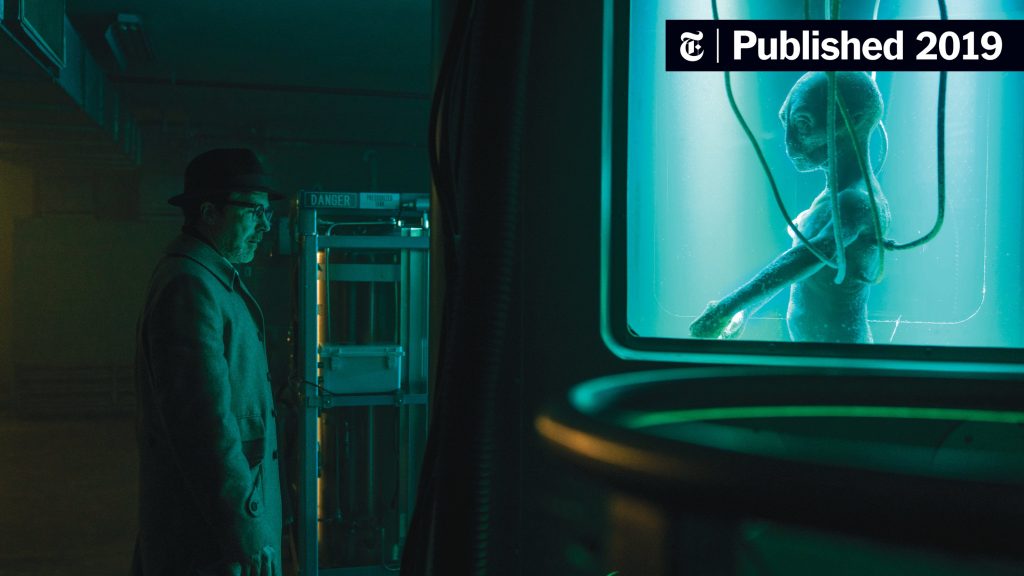Time travel in movies is purely fictional and lacks real-life concepts. However, the science behind time travel theories continues to spark curiosity and imagination.
In movies, time travel is often portrayed as a mystical experience that goes beyond scientific explanation. From time machines to wormholes, the creative license of filmmakers makes time travel seem like a possibility. But how accurate are these representations? How close are they to the scientific theories?
This article will explore the concepts of time travel in movies and compare them to the real-life scientific theories that drive the imagination of filmmakers. So, buckle up and let’s go on a journey to explore the fascinating world of time travel.

Credit: www.savagedodge.net
Myth 1: Changing The Past Alters The Future
The Common Belief That Changing Events In The Past Can Have Significant Effects On The Future
Time travel is a subject that has captured the imagination of many since it was first introduced in movies and novels. One of the most common myths is the idea that altering events in the past can create a monumental change in the present-day or future.
This concept is often used in movies to create tension, drama and suspense. However, many scientists argue that this myth is based on flawed notions and has no scientific evidence to support it.
Typical Movie Plotlines That Rely On This Idea, Such As Back To The Future
One of the most well-known movies that rely on this myth is the back to the future trilogy. In this movie, the protagonist, marty mcfly, travels back in time to change events that he believes will directly impact his present-day life.
After altering the past, marty returns to the future and finds himself in an entirely different world than the one he left. This idea is also used in other movies, including the butterfly effect and source code.
Debunking The Myth And Explaining Why Scientific Theories Suggest Changing The Past Would Not Significantly Impact The Future
Scientific theories on time travel suggest that the idea of changing the past to drastically alter the present or future is impossible. Albert einstein’s theory of relativity states that time and space are intertwined and dictate the fabric of the universe.
Changing the past, according to this theory, would shatter the entire framework of the universe, creating ripples that would affect every aspect of life. Additionally, the concept of causality suggests that everything in the universe is linked to other events, and changing a single event would not create a ripple effect resulting in significant changes in the future.
Time travel, despite being enticing as a concept, offers complex, insurmountable obstacles according to science and suggests that myth 1: changing the past alters the future, is an impossibility. While movies and novels thrive on such thrilling theories, it is best to take such ideas with a grain of salt and enjoy them purely for entertainment value.
Myth 2: Time Travel Is A Solo Journey
Many people believe that time travel is a solo journey, where the individual can go back or forth in time and change things to their liking. This idea is so pervasive that we’ve seen it in many popular movies and tv shows.
However, this is a gross oversimplification of how time travel would work in real life.
Key Points:
- The time traveler’s wife follows the story of a time traveler who goes back and forth in time alone, but this is just a fictional representation of time travel.
- In reality, time travel would require a team of experts, including physicists and mathematicians.
- The scientific knowledge required to understand the complexities of time travel is so significant that it would be impossible for one person to do it alone.
Explanation:
In the time traveler’s wife, we see a man who can jump back and forth in time by himself. This is just one example of how time travel has been portrayed in popular culture. However, in reality, time travel would require significant technological advancements and scientific knowledge that only a team of experts could achieve.
For instance, albert einstein’s general theory of relativity has given us a framework for studying time travel. Still, we are far from having the technology required for putting it into practice. Even if we manage to build the time machine, physicists and mathematicians would need to work together to calculate the necessary equations and understand how the machine might impact the timeline.
Therefore, we can debunk the myth that time travel is a solo journey.
Myth 3: Time Travel Is Only Possible In The Future
Time travel is a concept that has captured the imagination of people for centuries. From the written word to the silver screen, we’ve gone on adventures through time with the likes of h. g. Wells’ the time machine and the back to the future trilogy.
Movies often portray time travel in different forms, sometimes furthering myths and misconceptions about the topic. In this blog post, we’ll explore the myth that time travel is only possible in the future and examine how movies, such as the terminator, have contributed to this commonly held belief.
Define The Common Belief That Time Travel Is Only Possible In The Future
Time travel is often believed to be a phenomenon that will be possible only in the future. Throughout history, we have proved capable of making tremendous advancements in transportation, medicine, and technology. As a result, we tend to think that time travel will eventually become a possibility.
However, this notion works under the assumption that time travel must be a product of technological advancement far in the future.
Highlight Movies, Like The Terminator, Which Further This Myth
The terminator, a 1984 sci-fi movie, is a great example of how movies have contributed to the myth that time travel is only possible in the future. In the movie, a cyborg assassin is sent back in time to the year 1984 to kill the mother of a man who will lead a resistance against the machines in the future.
The cyborg is sent through time using a technology that relies on advanced robotics. The movie portrays time travel as a futuristic technology that is beyond our current capabilities.
Debunk The Myth And Explain How Scientific Theories Support The Possibility Of Time Travel In Either Direction
Contrary to the myth that time travel is only possible in the future, scientific theories suggest that it might be possible in either direction, including the past. According to the theory of general relativity, time travel can only be possible under specific physical conditions.
One potential method for time travel is through the use of a wormhole, a theoretical object that physicists believe to exist in the fabric of the universe. Wormholes are bridges or tunnels that connect two points in space-time. If we could somehow control a wormhole, we might be able to use it to travel back or forward in time.
Scientists also suggest that time travel might be made possible by traveling at near-light speeds or through black holes.
While the idea of time travel may seem like a fantastical concept, scientific theories and research suggest that it might indeed be possible. Contrary to what movies like the terminator portray, time travel is not just a technology of the future but could potentially be accomplished in either direction through the use of scientific principles that exist currently.
Myth 4: Time Travel Is Necessarily Physical
Many of the time travel movies we have seen portray time travel as physically transporting objects or people through time; however, in reality, time travel can occur without any physical transportation. This is possible due to the einstein theory of relativity that explains the science behind time travel.
Define The Common Belief That Time Travel Requires The Transportation Of Physical Objects Or People
It is widely believed that time travel involves the physical transportation of the objects or people to the target time period. This has been a recurring theme in many popular time travel movies, including the time machine, back to the future, and avengers: end game.
People envisioned extravagant machines, time capsules, or portals that could transport people to different time periods.
Highlight Movies That Rely On This Idea, Such As The Time Machine
The time machine, a 1960 classic directed by george pal, follows the story of a victorian-era gentleman who builds a time machine and travels through time. This movie is emblematic of the popular belief that time travel necessarily involves the physical transport of people or objects through time.
Other movies that rely on this idea include:
- Back to the future: Marty mcfly travels through time in a delorean car.
- Avengers: End game: the avengers travel through time using ant-man’s time machine.
- Bill & ted’s excellent adventure: Bill and ted use a phone booth as a time machine.
- Interstellar: The crew travels through a wormhole to travel through time.
Debunk The Myth And Explain The Possibility Of Time Travel Occurring Without Physical Transportation
Einstein’s theory of relativity explains that time is relative to the observer’s position and speed. This theory lays the foundation for the possibility of time travel without physical transportation. Time travel can occur through two methods:
- Time dilation: Time dilation occurs when an object moves at speeds close to the speed of light. Time slows down relative to time on earth, providing the opportunity to travel through time.
- Time warping: Time warping occurs when a massive object bends the fabric of space and time. By traveling close to an object with intense gravity, time slows down, presenting the possibility of time travel.
Time travel doesn’t necessarily involve the physical transportation of objects or people, as it can occur through time dilation or time warping, as explained by the einstein theory of relativity. Despite science-fiction movies portraying this myth, time travel is possible without physical transportation, paving the way for a new era of scientific discovery.
Frequently Asked Questions Of Exploring Time Travel In Movies: Fiction Vs. Real-Life Concepts
Can Time Travel Be Achieved In Real Life?
At present, we have no evidence that suggests time travel is possible in real life. It remains a fictional concept.
How Does Time Travel Work In Movies?
In movies, time travel is typically portrayed as a device or magic that transports a character through time and space.
What Are Some Popular Time-Travel Movies?
Some popular time-travel movies include back to the future, the terminator, groundhog day, and the time traveler’s wife.
Conclusion
As we come to the end of our exploration of time travel in movies, it’s clear that the concept of time travel has always fascinated us. From the fictional, fantastical depictions of time travel in films like the terminator to the more realistic and scientific depictions in films like interstellar, time travel has remained a staple in the world of cinema for decades.
While we may never know if time travel is truly possible, it’s clear that these films have captured our collective imagination and sparked our curiosity. As we continue to explore the mysteries of the universe, time travel will undoubtedly remain a captivating subject in both pop culture and scientific circles.
Whether we’re watching back to the future for the hundredth time or pondering the implications of quantum mechanics, the concept of time travel will always keep us coming back for more.

